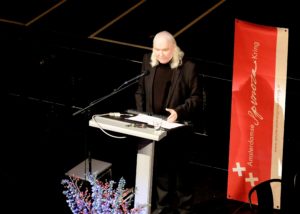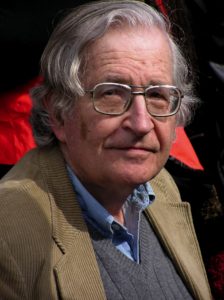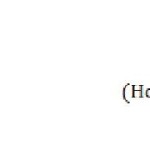Three Secular Seductions: One nation, One government, One science ~ Festschrift for Dr. Sytse Strijbos
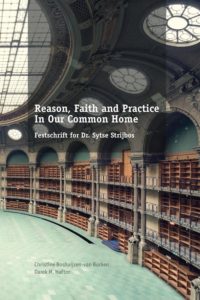 Introduction
Introduction
Is evidence-based politics [i] an idea a monolithic view of society? In one version of such a monolithic view, it is (a) the government that directs a society within (b) the boundaries of a nation-state, giving much credit to (c) the ‘oracles’ of science in the process to take its policy decisions.
In this essay I try to clarify why this monolithic view of society is dangerously flawed. Part of the reasoning below will be a description of
1) pluralities that are real, but obscured within a seemingly monolithic view of a government, a nation-state and/or science.
2) a religious or pseudo-religious status that willingly or unwillingly can be assigned to (a) the role of a government, (b) a nation-state and its boundaries; and/or (c) an evidence-based approach of political decision-making. The focus of this essay will be on the latter (c), which usually implicates an appeal to science. However, from the outset it must be clear that this essay is not a plea for fact free politics. On the contrary, the careful, methodical or scientific, academically embedded search for relevant information is recognized as an asset. Dangerous effects of the evidence-based approach are related to the supposed status of the academic expert and its possible anti-democratic or other restrictive effects.
Although applicable within the wider context of North-Atlantic (‘Western’) culture, Sytse Strijbos’ homeland, the Netherlands, is the assumed political context for the contentions that follow. Specifically, at the end of this essay (section 6.2) I will refer to a recent report published – in Dutch – by the Council for Public Health and Society in the Netherlands. In this report the approach of evidence-based practices in health care is criticized and at least relativized. This report is important because the government – every government – has a responsibility for public health and its funding.
Disclosive Systems Thinking, to which the name of Sytse Strijbos adheres firmly, represents an interdisciplinary and pluralistic, multi-aspectual approach to societal issues. Because of its pluralistic nature it provides several clues to dissect monolithic views. Specific philosophical sources fuelled this pluralistic look and feel of Disclosive Systems Thinking. These sources will be used to guide this dissection of ‘one nation, one government, one science’ into its constituents and to understand clashes both between these three domains and within each of them. These clashes can be multicultural tensions, parliamentary debates or deadlocks, or scientists disagreeing because of conflicting paradigms. The selection of these three seductive domains out of many more domains (money, music, drugs, …) is guided by the current popularity of evidence-based politics [ii] and its context: ‘evidence’ is expected from science; ‘politics’ is expected from the government; and a national government, to which I restrict myself here, assumes a nation state as context for its policies. Read more
Spinoza ~ The Philosopher Of Counter-Radicalization
Spinoza Lecture 2016 – Amsterdam, November 27
Part 1 ~ Personal meaning
It’s an honour to address the Spinozakring in Amsterdam on Spinozadag. As a young man, I was living in Belfast during the darkest years of the terrorist Troubles, when I set out for Trinity College, in Dublin to begin 5 years of post-graduate research on the subject: “Spinoza’s Ethics and the Meaning of Life.”
What followed was an unequal struggle – Spinoza was even more challenging than I thought – and I didn’t find the meaning of life. In the process, I struggled, mentally. No one I met seemed the slightest bit interested in Spinoza and the more I read and understood The Ethics, the more isolated, anxious and remote from everyday life I became – as if I was going in one direction and everyone else was headed in another.
And during those difficult years, I learned new ways of thinking and Being – perspectives and insights on life and the human condition. Things that have stayed with me to this day; that made me who I am; and that will – I hope – play an important part in my future. After much difficulty, I learned to see and understand the world the way Spinoza saw it.
Spinoza became my anchor – my reference – for exploring life — a beacon of intellectual strength and independence. ‘The Philosopher of Amsterdam” – became my cultural hero in Belfast – not only for his philosophy, but for his character. And just as he was an outsider in his community, so was I.
I learned that the concept of Unity – of living with an attitude towards One-ness, cohesion, and cooperation — was central to Spinoza’s thinking and that his greatest work, The Ethics, described a path to a radical form of mental health through three mutually reinforcing forms of unity, designed to cure three kinds of division.
The first step is to heal and unite the divided self, to overcome conflicted and self-harming emotions, using his psychology; the second, is to unite us with others in strong bonds of friendship, guided by his radical humanism; the third, a cure for ontological alienation in moments of insight when our drop-consciousness joins in an oceanic experience with the eternal.
These three perspectives on human existence – the psychological, the pragmatic and the metaphysical – define why Spinoza’s thinking is so powerful.
Part 2 ~ The two truths
And this brings us to the tension at the centre of his Ethics – and indeed, the terrible contradiction at the heart of the human condition – one that generates so much religious superstition and metaphysical speculation. I’ll try and put this as clearly as possible.
The first self-evident truth of the human condition is the subjective truth of Being, how we feel as we look outwards onto the world. We’ve already beaten astronomical odds to arrive as self-conscious beings and sense the significance of our moment. The truth of our individual identity – that we are separate and distinct from everything else – places us at the centre of our universe. We instinctively prioritize our needs and drives, those we love and care for, and the projects we value. Above all, we want our chance at life to continue.
The second self-evident truth – and it is just as mysterious — is that none of this matters. From the perspective of timeless eternity, whether we live or die, whether our projects succeed or fail, what we want for ourselves and others, means nothing. Everything we value – including our lives – will be taken from us, often brutally, no matter how hard we fight, how much we care, or how good or valuable we are to Mankind. If you want to believe our lives and hopes matter in some objective way, chose a religion, but don’t read Spinoza to find the answer.
These two truths represent life and death, or more accurately, time and eternity. They’re at war with each other and define the drama of the human condition. Their conflict inspires great art, writing, theatre and music — acts of courage, love and self-sacrifice. But it also drives the dark side – depression, meaninglessness, war, suicide …. and violent extremism. The conflict is resolved in death, in that the second truth always wins – and we, as individuals – must surrender. But, it’s our defiance, our stubborn striving to hold our identity in the face of inevitable loss that makes the human condition feel like a restless, if not urgent, roller-coaster ride.
Like many great thinkers, Spinoza tries to reconcile these two truths… and he does it beautifully. He teaches us how both perspectives, both truths can be held and experienced simultaneously. He shows us a way to bring them together as a lived experience – purely for the love, strength and peace of mind — it brings us. This is his magic.
His Ethics has gifted us a strange, extraordinary, philosophy; – of this world, and yet not of this world – that makes it one of the truly great philosophical masterpieces.
Read more
Trump’s America And The New World Order: A Conversation With Noam Chomsky
For the prelude to this interview, read yesterday’s conversation with Noam Chomsky on “Trump and the Flawed Nature of US Democracy“, which exposes the pitfalls of the political system that made Trump’s rise to power a reality.
Are Donald Trump’s selections for his cabinet and other top administration positions indicative of a man who is ready to “drain the swamp?” Is the president-elect bent on putting China on the defensive? What does he have in mind for the Middle East? And why did Barack Obama choose at this juncture — that is, toward the end of his presidency — to have the US abstain from a UN resolution condemning Israeli settlements? Are new trends and tendencies in the world order emerging? In this exclusive Truthout interview, Noam Chomsky addresses these critical questions just two weeks before the White House receives its new occupant.
C.J. Polychroniou: Noam, the president-elect’s cabinet is being filled by financial and corporate bigwigs and military leaders. Such selections hardly reconcile with Trump’s pre-election promises to “drain the swamp,” so what should we expect from this megalomaniac and phony populist insofar as the future of the Washington establishment is concerned?
Noam Chomsky: In this respect — note the qualification — Time magazine put it fairly well (in a Dec. 26 column by Joe Klein): “While some supporters may balk, Trump’s decision to embrace those who have wallowed in the Washington muck has spread a sense of relief among the capital’s political class. ‘It shows,’ says one GOP consultant close to the President-elect’s transition, ‘that he’s going to govern like a normal Republican’.”
There surely is some truth to this. Business and investors plainly think so. The stock market boomed right after the election, led by the financial companies that Trump denounced during his campaign, particularly the leading demon of his rhetoric, Goldman Sachs. According to Bloomberg News, “The firm’s surging stock price,” up 30 percent in the month after the election, “has been the largest driver behind the Dow Jones Industrial Average’s climb toward 20,000.” The stellar market performance of Goldman Sachs is based largely on Trump’s reliance on the demon to run the economy, buttressed by the promised roll-back in regulations, setting the stage for the next financial crisis (and taxpayer bailout). Other big gainers are energy corporations, health insurers and construction firms, all expecting huge profits from the administration’s announced plans. These include a Paul Ryan-style fiscal program of tax cuts for the rich and corporations, increased military spending, turning the health system over even more to insurance companies with predictable consequences, taxpayer largesse for a privatized form of credit-based infrastructure development, and other “normal Republican” gifts to wealth and privilege at taxpayer expense. Rather plausibly, economist Larry Summers describes the fiscal program as “the most misguided set of tax changes in US history [which] will massively favor the top 1 per cent of income earners, threaten an explosive rise in federal debt, complicate the tax code and do little if anything to spur growth.”
But, great news for those who matter.
There are, however, some losers in the corporate system. Since November 8, gun sales, which more than doubled under Obama, have been dropping sharply, perhaps because of lessened fears that the government will take away the assault rifles and other armaments we need to protect ourselves from the Feds. Sales rose through the year as polls showed Clinton in the lead, but after the election, the Financial Times reported, “shares in gun makers such as Smith & Wesson and Sturm Ruger plunged.” By mid-December, “the two companies had fallen 24 per cent and 17 per cent since the election, respectively.” But all is not lost for the industry. As a spokesman explains, “To put it in perspective, US consumer sales of firearms are greater than the rest of the world combined. It’s a pretty big market.”
Normal Republicans cheer Trump’s choice for Office of Management and Budget, Mick Mulvaney, one of the most extreme fiscal hawks, though a problem does arise. How will a fiscal hawk manage a budget designed to massively escalate the deficit? In a post-fact world, maybe that doesn’t matter.
Also cheering to “normal Republicans” is the choice of the radically anti-labor Andy Puzder for secretary of labor, though here too a contradiction may lurk in the background. As the ultrarich CEO of restaurant chains, he relies on the most easily exploited non-union labor for the dirty work, typically immigrants, which doesn’t comport well with the plans to deport them en masse. The same problem arises for the infrastructure programs; the private firms that are set to profit from these initiatives rely heavily on the same labor source, though perhaps that problem can be finessed by redesigning the “beautiful wall” so that it will only keep out Muslims.
Read more
David Kenning ~ Spinoza – Philosopher Of Counter-Radicalization
Read: http://rozenbergquarterly.com/spinoza-the-philosopher-of-counter-radicalization/
Amsterdamse Spinoza Kring: http://www.amsterdamsespinozakring.nl/
Read more:
~ Paul Bell – Isis and Violent Extremism: Is the West’s Counter-Narrative Making the Problem worse? Influence: http://influence.cipr.co.uk/isis-violent-extremism-
~ David Ignatius – The Islamic State feeds off Western Islamophobia ~ Washington Post: https://www.washingtonpost.com/the-islamic-state-is-fueled-by-islamophobia
Critique Of Heaven And Earth Equality ~ Religion And Political Emancipation According To Karl Marx
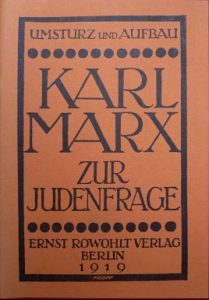 Introduction
Introduction
Both left-wing and right-wing parties and movements claim to defend Western Values while demonstrating against Islam or against Islamophobia and Populism. From both sides we hear words like Liberty and Equality. Both sides are pointing to the Enlightenment as the core of European Values. When defending ‘European Civilisation’, everyone points to the French Revolution and its Manifesto, the Declaration of Human Rights. The French struggle against privilege, for equal political rights was the start of the political emancipation of the citizens that after 1789 spread all over Europe.
I think we all agree that the legacy of the French Revolution is worth to be defended, but there is a new struggle going on about its Interpretation: do the European Values come in a ready-made package, to be accepted and implemented by the whole world or at least by everyone coming to Europe? Or is the French Revolution still an unfinished business and do we still have to struggle for the realisation of equality and liberty in our societies? I would like to show you why I am of the opinion that the latter is the case, by looking more closely into the heritage of this project for liberty and equality from the 18th century.
I will do so, using a text of the German thinker Karl Marx. (Trier, 5 may 1818 – Londen, 14 march 1883) He is mainly known for his economical ideas about Capital and Labour, but his political texts are in no means less insightful.
If you want to know how equal and free a society is, it is always a good idea to look at the rights of those who are looked upon as ‘different’ from everybody else. Those who claim equal treatment because they are being discriminated against. Marx does exactly this. He addresses an issue that was debated fiercely during the 19th century, just like it is today. I am talking about the relation between State and Religion. Back then the big issue was the position of Jews in society. The state was not secular, but Christian, and Jews were second-class citizens with less rights than our minorities have now. Things are different today, but we can still recognize the questions of the 19th century: does Jews have to renounce their religion in order to obtain full citizenship? Are Jews a threat to society because of their different customs and religious practices? Today, we would never pose these questions in relation to Jews. But they are openly discussed in relation to Muslims.
Marx, of Jewish origin himself, intervenes in 1843 in the debate, publishing the essay Zur Judenfrage. On the Jewish Question, is written 24 years before Capital. In this text, he laid a fundament for his later work. The text is a polemic reaction to an earlier article called Jewish Question from Bruno Bauer, who belonged to the same philosophical-political group as Marx, the Hegelians.
His first point, which is crucial, is a change of perspective: while discussing the Jewish Question, do not look at the behaviour and aspirations of the Jews, but look at the role of the State. Marx uses the Jewish Question to analyse the mechanism of political emancipation in a modern society. In this endeavour, the criticism of religion is the condition of a criticism of politics.
Criticism of religion: what religion and political emancipation have in common
What are we talking about? We are talking about human rights. We have to realise that the original Declaration from 1789 was called Declaration of the rights of Man and of the Citizen (French: Déclaration des droits de l’homme et du citoyen) In 1948, when the UN adopted the Declaration it became the Universal Declaration of Human Rights. The Citizen disappeared.
That is striking, since the core of the analysis by Marx lies in the difference between ‘Man’ and Citizen’. In his words, between emancipation as such and political emancipation. By letting the Man and the Citizen fuse into the Human, an essential procedure of political emancipation is covered up. Who is this ‘Man’ in the Declaration?
Niemand anders als das Mitglied der bürgerlichen Gesellschaft. Warum wird das Mitglied der bürgerlichen Gesellschaft ‘Mensch’, Mensch schlechthin, warum werden seine Rechte Menschenrechte genannt? Woraus erklären wir dies Faktum? Aus dem Verhältnis des politischen Staats zur bürgerlichen Gesellschaft, aus dem Wesen der politischen Emanzipation. (p.363-364)
Read more
Muslim Calvinism – Internal Security and The Lisbon Process In Europe
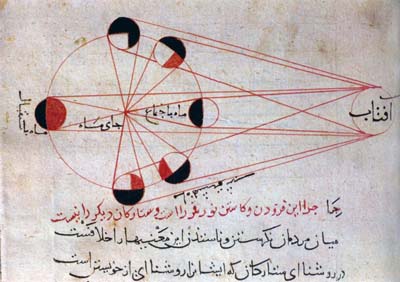 The European Social Survey Data, and Internal Security in Europe
The European Social Survey Data, and Internal Security in Europe
Muslim Calvinism systematically evaluates the freely available data, contained in international open sources, such as the European Social Survey, on the problems of internal security, and social policy in Europe. The book is the attempt to try to present an interpretation pattern for the complex reality of poverty; social exclusion, religious and societal values, and day to day contact of different population groups in Europe with the law.
The optimistic results of this study are in line with recent very sophisticated and advanced quantitative research results, especially by authors from the neo-liberal school of thinking, who maintain that instead of engaging in a culturalist discourse about the general “disadvantages” of Islam, Europe rather should talk about economic-growth-enhancing migration, property rights, discrimination against minorities on the labor markets, and that by and large, Islam is well compatible with democracy and economic growth (see also Noland M. (2004), Noland M. (2005), Noland M. and Pack H. (2004), Pettersson Th. (2006), Pryor F. (2006), Soysa I. De and Nordas R. (2006), and Tausch A. (2003)). If there is anything as “integration deficits” of the Muslim communities in Europe vis-à-vis the law, defined in this study along indicators of document fraud as well as indicators of lack of trust in the police and in European institutions, these deficits are caused rather by market imperfections and market failures in the European political economy, largely characterized by state intervention, and not by any intrinsic destabilizing or simply “evil” “character traits” of Muslims.
In many ways, the polarizing events in France are a kind of laboratory and testing ground for our theories – high state sector involvement, a mediocre Lisbon performance, and a high, and increasing poverty among the country’s Muslims, which all contribute to rising social tensions, violence and protest in the „banlieus”.
Read more
- Page 2 of 2
- previous page
- 1
- 2
